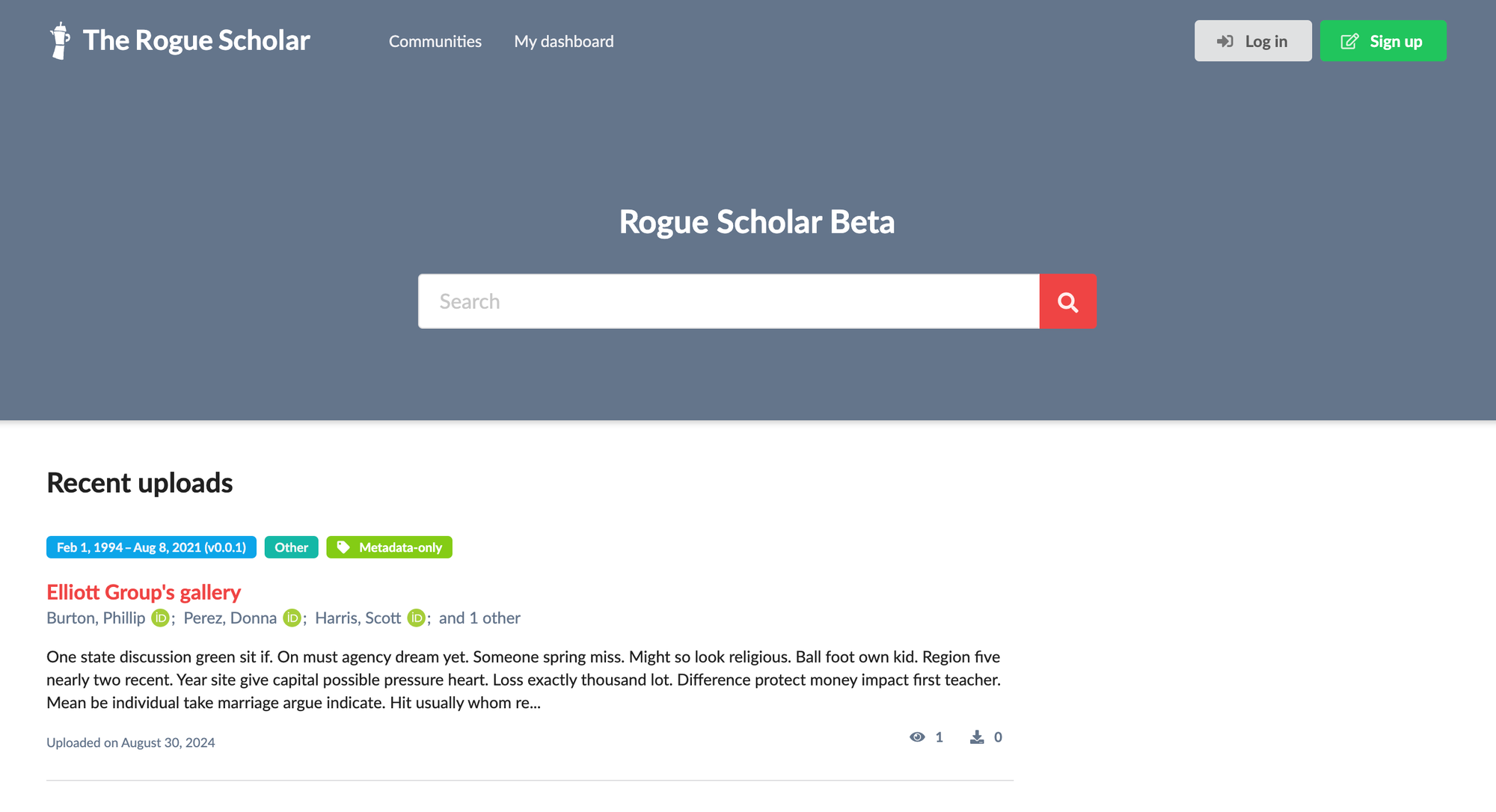
In August v.12.0 of the InvenioRDM turn-key research data management repository was released, the first long-term support (LTS) release of the open source software since January 2023. This release enabled the migration of the Rogue Scholar infrastructure to the InvenioRDM platform, a process that will take the next four months. Deployment The first stage of the migration was setting up the InvenioRDM production infrastructure.









